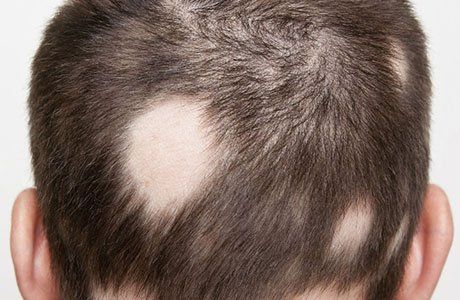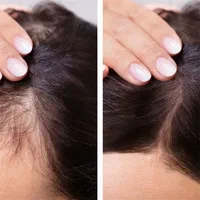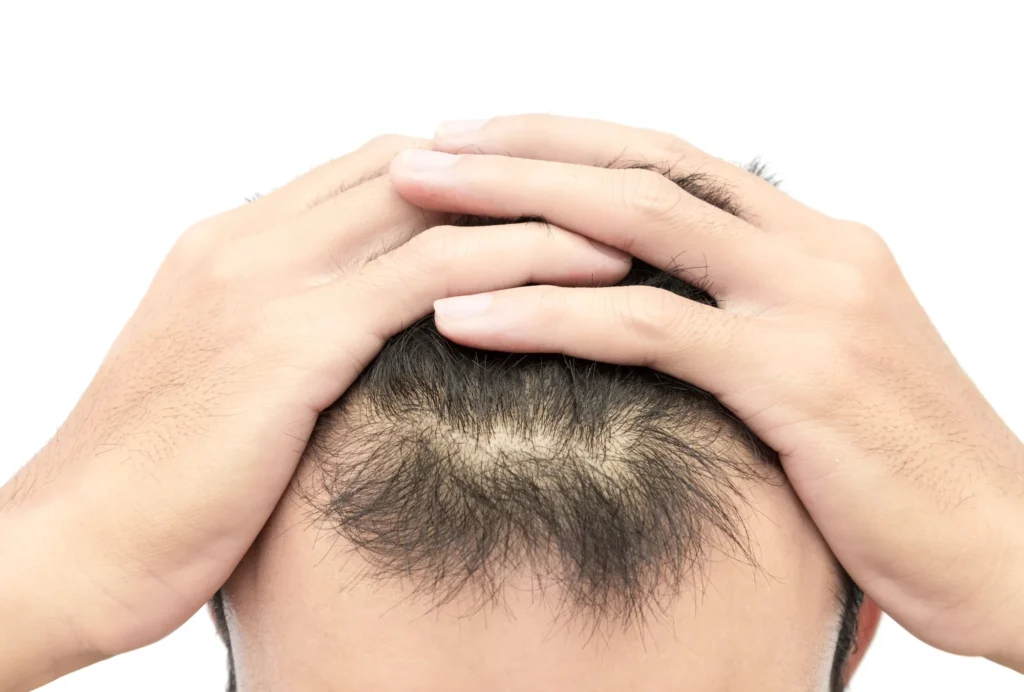Hair loss can be distressing, especially when it’s caused by alopecia, an autoimmune condition that interrupts your natural hair cycle.
This article explores natural treatments for alopecia, offering evidence-based remedies like essential oils, herbal solutions, and nutritional support.
Discover safe, chemical-free alternatives that encourage regrowth, improve scalp health, and restore confidence.
With expert-backed insights and real patient stories, this comprehensive guide helps you take control of your hair recovery naturally and safely.
What Is Alopecia? Understanding the Root of Hair Loss
Alopecia is a medical term for hair loss that can affect the scalp or the entire body. It’s not just a cosmetic issue—it’s often emotionally and psychologically distressing. Understanding the cause is key to selecting the right treatment.

Types of Alopecia
- Alopecia Areata: Patchy hair loss caused by an autoimmune reaction.
- Alopecia Totalis: Complete loss of scalp hair.
- Alopecia Universalis: Loss of all hair on the body, including eyebrows and eyelashes.
- Androgenetic Alopecia: Hormonal or genetic hair thinning, more common in men but also affects women.
Common Causes and Risk Factors
- Autoimmune dysfunction
- Stress and trauma
- Genetic predisposition
- Nutritional deficiencies
- Hormonal imbalance
How Alopecia Affects Quality of Life
Alopecia impacts self-esteem, social interaction, and mental well-being. Natural treatments are increasingly popular as they offer a gentle, holistic way to manage symptoms without harsh side effects.
Why Choose Natural Treatments for Alopecia?
While conventional treatments like corticosteroids and minoxidil can offer results, they often come with side effects or limited effectiveness.
Side Effects of Conventional Treatments
- Skin irritation
- Hormonal disruption
- Rebound hair loss after stopping treatment
- Costly and repetitive procedures
Benefits of Holistic, Non-Chemical Approaches
- Fewer side effects
- Long-term scalp and hair health
- Often more affordable and accessible
- Address root causes like inflammation and nutrient deficiency
Who Should Consider Natural Alternatives?
- Those with mild to moderate alopecia
- Individuals sensitive to pharmaceutical ingredients
- People looking for complementary therapies alongside medical treatment
Top Natural Treatments for Alopecia (Backed by Research & Experience)
Here are the most promising natural solutions for treating alopecia, supported by research and traditional healing systems:
Essential Oils
- Rosemary Oil: Increases circulation and hair thickness
- Peppermint Oil: Stimulates follicle activity
- Lavender Oil: Soothes inflammation and reduces stress
Pro Tip: Mix 2–3 drops with a carrier oil like jojoba; apply 3x weekly.
Nutritional Supplements
- Biotin (Vitamin B7): Improves keratin structure
- Zinc & Iron: Crucial for follicle regeneration
- Vitamin D: Linked to alopecia areata cases
Medical Note: Always test for deficiencies before supplementing.
Herbal Remedies
- Saw Palmetto: Blocks DHT (linked to hair thinning)
- Green Tea Extract: Reduces inflammation
- Ginseng: Promotes blood flow to the scalp
Scalp Massage & Microneedling
- Stimulates follicle health and increases absorption of topical treatments
Step-by-Step:
- Use fingertips in a circular motion for 5 minutes/day
- Combine with essential oil application
- Optional: weekly microneedling with dermatologist approval
Ayurvedic & Traditional Medicine Approaches
- Bhringraj oil, Amla oil, and Neem: Ancient Indian remedies for scalp rejuvenation
- Acupuncture & Chinese herbs: Used to rebalance energy and reduce inflammation
Anti-Inflammatory Diets & Gut Health
- Include: Omega-3s, turmeric, leafy greens, berries
- Avoid: Sugar, processed foods, gluten (in sensitive individuals)
Gut health and autoimmune response are closely linked—an anti-inflammatory diet can improve outcomes.
Evidence & Case Studies: What Science and Patients Say
Recent Research Supporting Natural Options
- A 2015 study found rosemary oil to be as effective as minoxidil after 6 months of use.
- A 2018 clinical review showed that microneedling enhanced hair regrowth in alopecia patients.
- Zinc and biotin deficiencies were found in over 30% of alopecia areata cases.
Real Patient Stories and Before/After Testimonials
“After switching to essential oils and an anti-inflammatory diet, I saw regrowth in just three months,” — Ayesha K., 34, Pakistan
“Microneedling combined with rosemary oil gave me visible baby hairs around bald patches,” — David M., 29, UK

Expert Insights
According to Dr. Rana Irfan, a trichologist based in Islamabad:
“Natural treatments can be highly effective when combined with lifestyle changes and tailored to the individual’s condition. Always consult a professional before starting.”
Safety Tips and Guidelines for Natural Alopecia Remedies
Allergies and Patch Testing
- Always test new oils or herbs on a small skin patch
- Monitor for 24 hours before full application
What to Avoid When Going Natural
- Overuse of oils (can clog follicles)
- Mixing too many treatments at once
- Falling for “miracle cure” marketing
When to See a Specialist
- Sudden or rapid hair loss
- No improvement after 3–6 months
- Signs of underlying medical issues (e.g., thyroid dysfunction)
Timeline for Results: What to Expect and When
Short-Term (0–3 Months)
- Reduced shedding
- Less inflammation and scalp irritation
Mid-Term (3–6 Months)
- Appearance of baby hairs
- Better scalp texture and coverage
Long-Term (6–12 Months)
- Noticeable regrowth
- Improved hair density and volume

Expert Tips to Maximize Hair Regrowth Naturally
Daily Hair Care Best Practices
- Use mild, sulfate-free shampoos
- Avoid tight hairstyles or excessive brushing
- Let hair air dry whenever possible
Stress Reduction Techniques
- Practice yoga, deep breathing, or meditation
- Get at least 7–8 hours of sleep per night
- Consider journaling or therapy for emotional support
Sleep & Hormonal Balance
- Maintain a consistent sleep schedule
- Consider adaptogens like Ashwagandha (consult a healthcare provider)
FAQs About Natural Treatments for Alopecia
Can natural remedies completely cure alopecia?
How long before I see results from natural treatments?
Are essential oils safe for daily use?
Can diet really help reverse hair loss?
What are the signs a natural remedy is working?
Take the Next Step in Your Hair Recovery Journey
Ready to reclaim your confidence with natural, holistic care?
Book a personalized consultation with Dr. Rana Irfan in Islamabad and get a custom plan that aligns with your unique needs, lifestyle, and goals.
